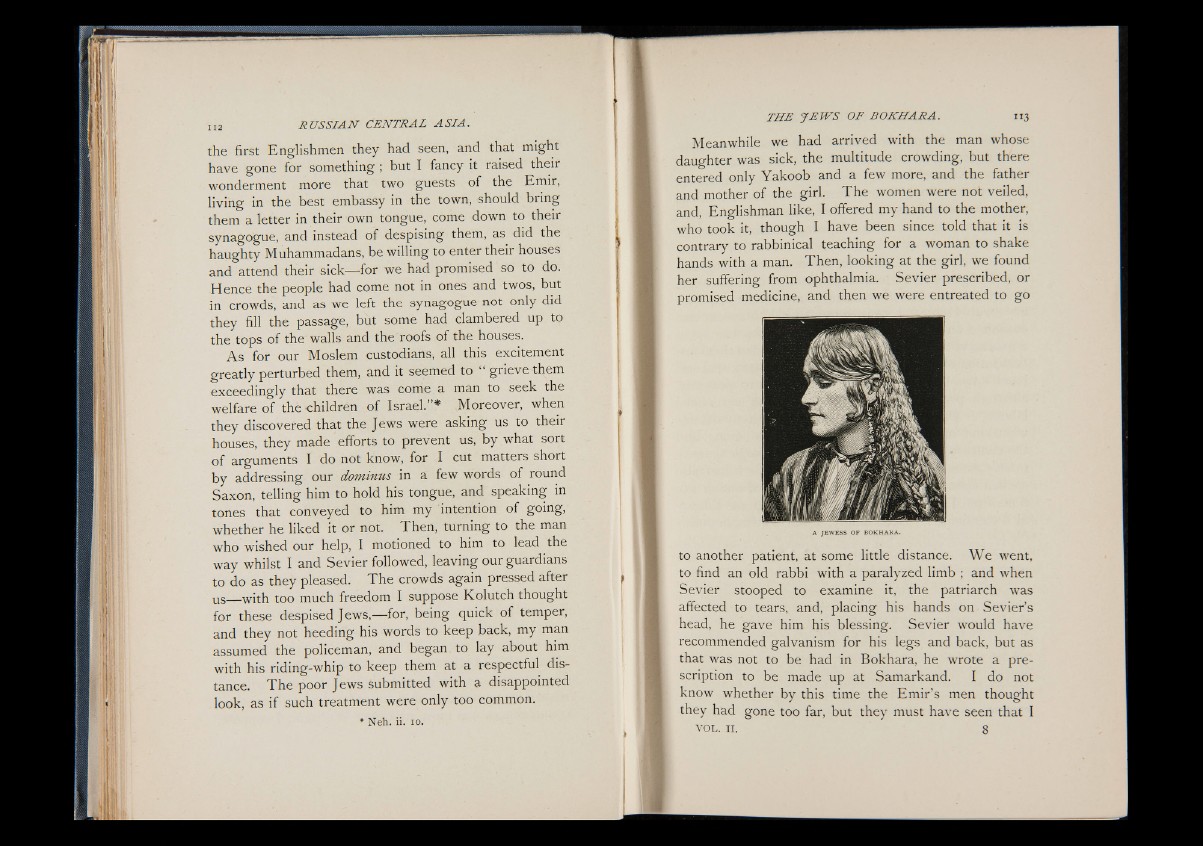
the first Englishmen they had seen, and that might
have gone for something ; but I fancy it raised their
wonderment more that two guests of thq Emir,
living in the best embassy in the town, should bring
them a letter in their own tongue, come down to their
synagogue, and instead of despising them, as did the
haughty Muhammadans, be willing to enter their houses
and attend their sick— for we had promised so to do.
Hence the people had come not in ones and twos, but
in crowds, and as we left the synagogue not only did
they fill the passage, but some had clambered up to
the tops of the walls and the roofs of the houses.
A s for our Moslem custodians, all this excitement
greatly perturbed them, and it seemed to “ grieve them
exceedingly that there was come a man to seek the
welfare of the -children of Israel.” * Moreover, when
they discovered that the Jews were asking us to their
houses, they made efforts to prevent us, by what sort
o f arguments I do not know, for I cut matters short
by addressing our dominus in a few words of round
Saxon, telling him to hold his tongue, and speaking in
tones that conveyed to him my intention of going,
whether he liked it or not. Then, turning to the man
who wished our help, I motioned to him to lead the
way whilst I and Sevier followed, leaving our guardians
to do as they pleased. T he crowds again pressed after
us——with too much freedom I suppose Kolutch thought
for these despised J ews,— for, being quick of temper,
and they not heeding his words to keep back, my man
assumed the policeman, and began to lay about him
with his riding-whip to keep them at a respectful distance.
T he poor Jews submitted with a disappointed
look, as if such treatment were only too common.
Meanwhile we had arrived with the man whose
daughter was sick, the multitude crowding, but there
entered only Yakoob and a few more, and the father
and mother of the girl. T he women were not veiled,
and, Englishman like, I offered my hand to the mother,
who took it, though I have been since told that it is
contrary to rabbinical teaching for a woman to shake
hands with a man. Then, looking at the girl, we found
her suffering from ophthalmia. Sevier prescribed, or
promised medicine, and then we were entreated to go
A JEWESS O F BOKHARA.
to another patient, at some little distance. W e went,
to find an old rabbi with a paralyzed limb ; and when
Sevier stooped to examine it, the patriarch was
affected to tears, and, placing his hands on Sevier’s
head, he gave him his blessing. Sevier would have
recommended galvanism for his legs and back, but as
that was not to be had in Bokhara, he wrote a prescription
to be made up at Samarkand. I do not
know whether by this time the Emir’s men thought
they had gone too far, but they must have seen that I
VOL. 11. 8